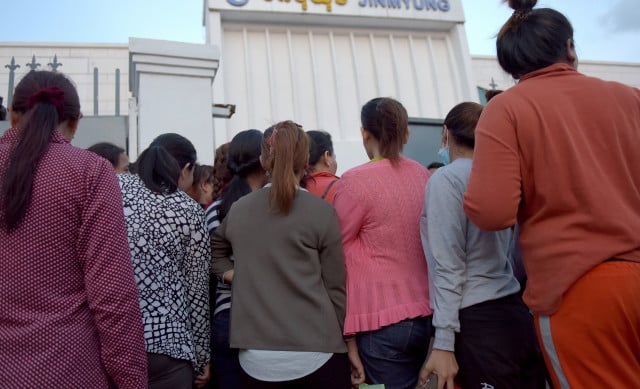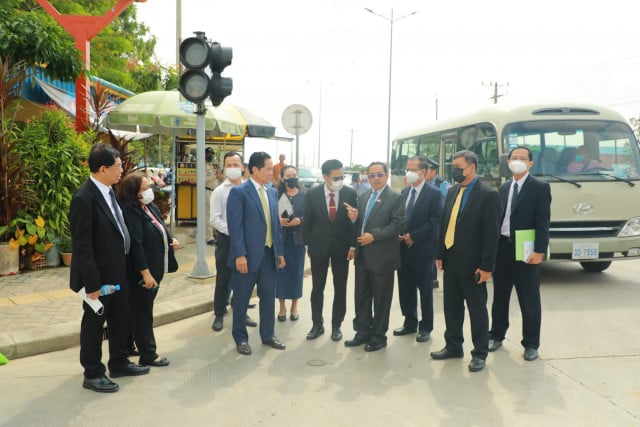EU to Hit Cambodian Exports Worth $1 Billion with Tariffs in Partial EBA Suspension

- Gerald Flynn
- February 12, 2020 11:49 AM
Selected garments and footwear exports will now face tariffs, along with all travel goods and sugar, according to the European Commission’s report.
PHNOM PENH--The European Commission has today announced that it will withdraw roughly 20 percent of Cambodia’s access to the Everything But Arms (EBA) preferential trading scheme, applying tariffs to €1 billion ($1.09 billion) of trade. This comes after 24 months of speculation since the EU first voiced concerns over Cambodia’s democratic backsliding, and numerous violations of human and labor rights.
High Representative for Foreign Affairs and Security Policy, Josep Borrell, who also serves as the Vice-President of the European Commission said “The duration, scale and impact of Cambodia's violations of the rights to political participation and to the freedoms of expression and association left the European Union with no other choice than to partially withdraw trade preferences.
“The European Union will not stand and watch as democracy is eroded, human rights curtailed, and free debate silenced. Today's decision reflects our strong commitment to the Cambodian people, their rights, and the country's sustainable development. For the trade preferences to be reinstated, the Cambodian authorities need to take the necessary measures.”
EU Trade Commissioner, Phil Hogan noted that human rights are non-negotiable for the trading bloc and that serious concerns remain over the Hun Sen administration’s abuses in these matters. Hogan went on to explain the EU will continue to work with Cambodia to help the Kingdom develop socially and economically.
Key products that have been hit include garments, footwear, textiles, travel goods such as suitcases and trunks, along with sugar, but this list is far from exhaustive and a full investigation of the Harmonized Systems codes listed in the EU’s 17-page document will need to be conducted before Hun Sen can truly count the cost of his actions. Early estimates suggest that 12 percent tariffs could mean €120 million ($130.9 million) lost annually, but won’t come into effect until August 2020.
This will come as a massive blow to the Kingdom’s garment manufacturing sector, which has been one of the main beneficiaries of the agreement since its inception in 2001.
Cambodian exports of garments and footwear to the EU were valued at €4.6 billion in 2018 and made up over 86 percent of the €5.3 billion total. EBA previously guaranteed quota-free and duty-free access on 7,200 products from Cambodia, although today’s decision reduces that significantly.
In the same year, Cambodia was the 57th largest supplier of goods to the US. Cambodian exports were valued at $3.8 billion, up 24.8 percent from 2017 with the majority of goods exported falling under the US Generalized System of Preferences (GSP), allowing duty-free access to the US market for some 5000 products.
The Ministry of Foreign Affairs and International Cooperation is yet to comment on the matter.
*This article was modified to correct the headline. Cambodia doesn't lose €1 billion due to a partial suspension of the EBA, but the EU imposes tariffs on €1 billion worth of Cambodian goods.















